
The challenges and dead ends of delivering aid in government-held areas in Syria
Ahmed Youssef , Agnès Levallois & Joseph Daher
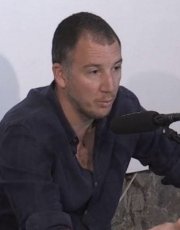
Ahmed is currently the hospital director of the MSF reconstructive surgery hospital in Amman. He is also a former member of a humanitarian organization operating in government-held areas in Syria.
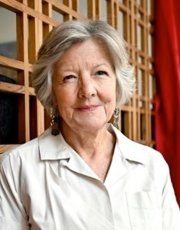
Agnès Levallois is an expert on Middle East issues, particularly on Syria. She is vice-president of the think tank iReMMO (Institut de recherche et d’études Méditerranée Moyen-Orient).
She is also a lecturer at SciencesPo Paris.
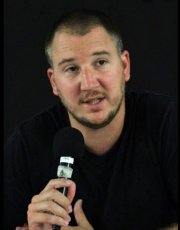
Joseph Daher teaches at the University of Lausanne, Switzerland, and is an affiliate professor at the European University Institute in Florence, Italy, where he co-coordinates the "Syrian Trajectories" research project. He is the author of "Syria after the Uprisings, The Political Economy of State Resilience" (2019) and "Hezbollah, the Political Economy of Lebanon's Party of God". He is also the author of numerous reports and articles in relations to Syria's economy, including the research collection entitled "Structured Chaos: how nonprofits in conflict settings became an economic sector".
This event took place on Wednesday 6 December 2023 at 6.30pm, at MSF headquarters, 34 avenue Jean Jaurès, 75019 Paris.
Crash and iReMMO were pleased to invite you to a round table discussion on the challenges, constraints, and limits of humanitarian aid in Syrian government zones.
Since the start of the war in 2011, Médecins Sans Frontières has been providing aid in Syria only in areas outside government control. Despite our numerous attempts, the authorities always refused our offers of work until the earthquake that struck the north of the country in February 2023. As part of a strategy to normalize diplomatic relations, the government accepted two major donations from the organization to the Syrian Arab Red Crescent (SARC) between February and April 2023. These donations and the ensuing negotiations, which were carried out with the aim of reaching an agreement on MSF's registration in Syria, gave rise to lively discussions within the organization: to what extent can we hope to negotiate an autonomous working space with a government which is responsible for mass atrocities, and which is described by researchers and human rights activists as exercising total control over international aid resources? Is humanitarian aid on the government side still condemned to "finance the Baathist repressive apparatus, [...] punish opponents and reward supporters" of the regime, in the words of Human Rights Watch in 2019? https://www.hrw.org/report/2019/06/28/rigging-system/government-policies-co-opt-aid-and-reconstruction-funding-syria
To answer these questions, we had the pleasure of welcoming Agnès Levallois, vice-president of iReMMO, consultant specializing in the Middle East and lecturer at Sciences Po Paris; Joseph Daher, professor at the European University Institute in Florence where he coordinates the ‘Syrian Trajectories' research project (online); Ahmed Youssef, now director of the MSF hospital in Amman and former member of a humanitarian organization operating in government-held areas in Syria (online); and Zahra Albarazi, Director of Programmes at the Syria Legal Development Programme (online). The meeting was moderated by Michaël Neuman, director of studies at Crash, Médecins Sans Frontières.
In partnership with iReMMO - Institut de recherche et d'études Méditerranée Moyen-Orient
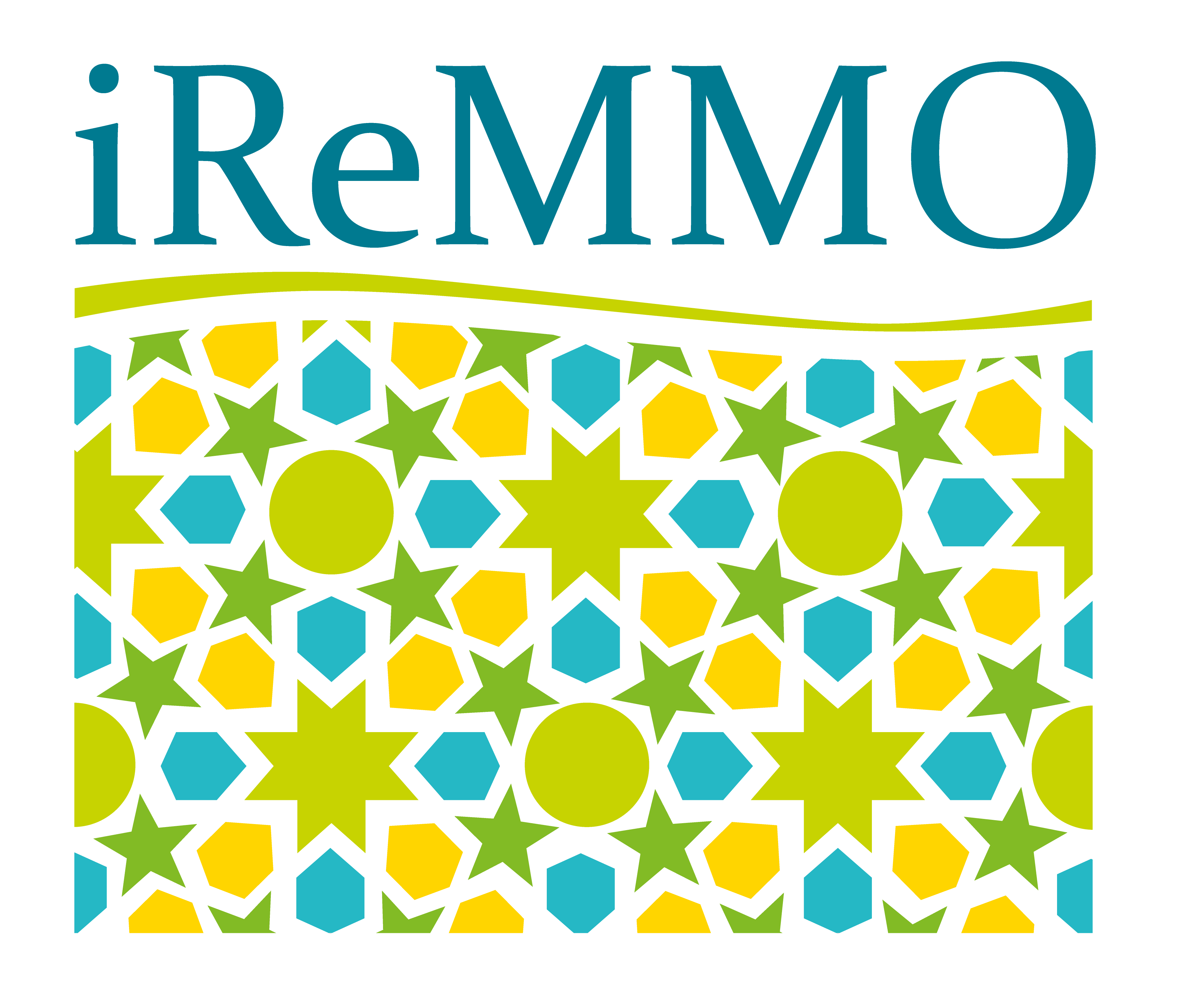
To cite this content :
Ahmed Youssef, Agnès Levallois, Joseph Daher, “The challenges and dead ends of delivering aid in government-held areas in Syria”, 6 décembre 2023, URL : https://msf-crash.org/en/conferences-debates/challenges-and-dead-ends-delivering-aid-government-held-areas-syria
If you would like to comment on this article, you can find us on social media or contact us here:
Contribute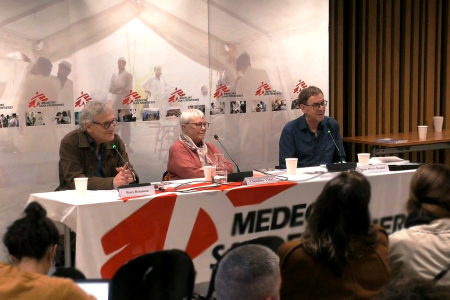 msf
Conference
msf
Conference
Book launch event - Violences extrêmes. Enquêter, secourir, juger République démocratique du Congo, Rwanda, Syrie
11/17/2021 - 06:30 PM 08:30 PM Jean-Hervé BradolWe were very happy to welcome two authors of the book: sociologist (CNRS) and Crash scientific committee member Claudine Vidal, and Jean-Hervé Bradol, doctor, former President of the French section of MSF and current director studies at the Crash, for the launching event of the newly-published book “Violences extrêmes. Enquêter, secourir, juger République démocratique du Congo, Rwanda, Syrie” (Éditions de la Maison des sciences de l’homme, Paris 2021). The event was hosted by Rony Brauman.
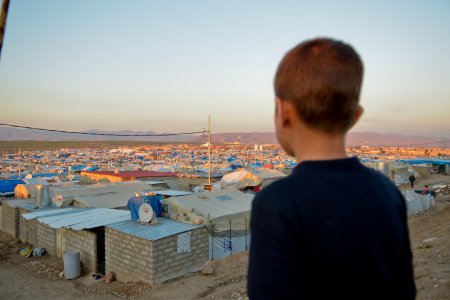 Pierre-Yves Bernard
Opinion
Pierre-Yves Bernard
Opinion
Syria: Breaking the De Facto Humanitarian Embargo against Rebel-Held Areas
03/19/2013 Fabrice Weissman Marie-Noëlle RodrigueWhile European Union members are debating the lifting of arms embargo on Syria, populations living in opposition held territories continue to be severed from desperately needed humanitarian aid. Yet, there is a controversy among aid agencies on the best ways to scale up relief activities in Syria.
Humanitarian Field Practices in the Context of the Syrian Conflict from 2011 to 2018
03/15/2021 Hakim KhaldiThis article was first published in Issue 2, Volume 2 of The Journal of Humanitarian Affairs.
How can a medical humanitarian organisation deliver emergency assistance in Syria when there is nowhere in the country where civilians, the wounded and their families, medical personnel and aid workers are not targeted? Not in the areas controlled by the government, nor in those held by the Kurdish Democratic Union Party (PYD), Islamic State of Iraq and the Levant (ISIL) or the different rebel groups. So what action could be taken, and how? Remotely or on site? At the very least, we had to decipher the diverging political and military agendas, and then adapt, persist or sometimes just give up. In this article, I will present the full range of methods used to acquire knowledge and obtain information as well as the various networks used to carry out this venture. I will also show how Médecins Sans Frontières’ operations became a balancing act, punctuated by episodes of adapting to the various difficulties encountered.
Past events
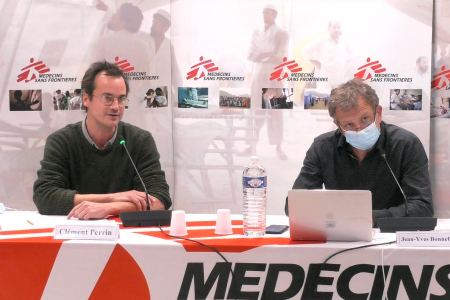 Conference
Conference
Another approach to well-being at work
12/09/2021 - 06:30 PM 08:30 PM Yves Clot Jean-Yves BonnefondThe members of the Crash were very happy to welcome you all to this new conference-debate with occupational psychologists Yves Clot and Jean-Yves Bonnefond, two of the authors of “Le prix du travail bien fait – La coopération conflictuelle dans les organisations” (Paris, La Découverte, 2021 ; co-written with Antoine Bonnemain and Mylène Zittoun).
 msf
Conference
msf
Conference
Book launch event - Violences extrêmes. Enquêter, secourir, juger République démocratique du Congo, Rwanda, Syrie
11/17/2021 - 06:30 PM 08:30 PM Jean-Hervé BradolWe were very happy to welcome two authors of the book: sociologist (CNRS) and Crash scientific committee member Claudine Vidal, and Jean-Hervé Bradol, doctor, former President of the French section of MSF and current director studies at the Crash, for the launching event of the newly-published book “Violences extrêmes. Enquêter, secourir, juger République démocratique du Congo, Rwanda, Syrie” (Éditions de la Maison des sciences de l’homme, Paris 2021). The event was hosted by Rony Brauman.
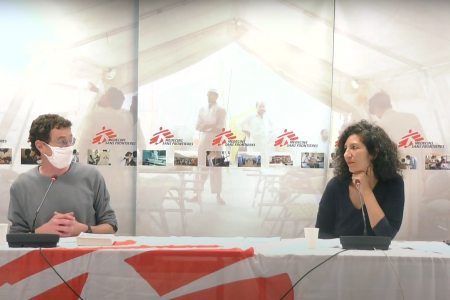 Conference
Conference
Asylum and exile. A history of the distinction between migrants / refugees
04/12/2021 - 06:30 PM 08:30 PM Karen AkokaOn April 12 2021 we had the great pleasure of hosting a virtual CRASH conference with political scientist and sociologist Karen Akoka, fresh from her publication in November of “Asylum and Exile. A History of the Refugee/Migrant Distinction" (La Découverte, 2020). The author described and analyzed the trajectory of OFPRA, the French institution founded in 1952 and responsible for granting refugee status; she provided an insight into how the history of the distinction between migrants and refugees was established in France.
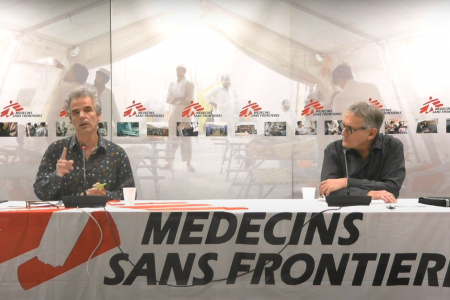 Conference
Conference
Clinical trials, between science and financial and academic interests
10/08/2020 - 06:00 PM 08:00 PM Pierre ChiracPierre Chirac, pharmacist and editor of the journal Prescrire, presented his analysis of the pharmaceutical industry's influence strategies and the special interests of university hospital researchers, their consequences on the reliability of drug information and the means now required to rectify a harmful situation.
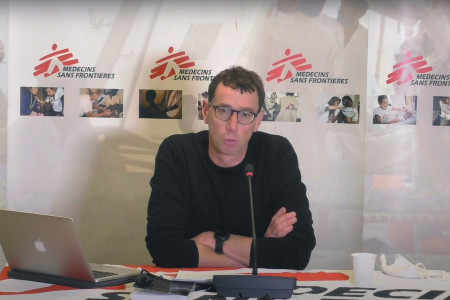 Conference
Conference
The quantification of needs
12/10/2020 - 06:00 PM 08:00 PM Joël GlasmanCombining historical research and ethnographic investigations, the Africanist historian Joël Glasman plunges us into the factory of the homo humanitarianus, the average individual, on the basis of which "needs" and aid projects today are assessed. This conversation took place on December 10th 2020, during a conference-debate at Crash.
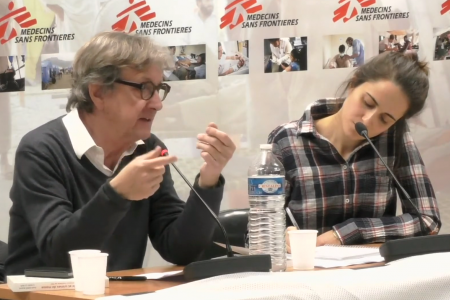 Conference
Conference
Territories: the illusion of identity
12/16/2019 - 06:00 PM 08:00 PM Jean-François BayartConference-debate on Monday 16 December 2019, 6-8pm in the 1st floor meeting room at MSF, 14-34 avenue Jean Jaurès 75019 Paris. Streaming and simultaneous translation into English available.
Can we talk about the specificities of the Middle East, Iran or the Mediterranean without reducing these territories to a culture or religion? On December 16, 2019, the CRASH team organised a conference-debate with Jean-François Bayart, a French political scientist who has devoted his work to the sociology of the State and identity illusions.
Période
Newsletter
Subscribe to our newsletter to stay informed about our latest publications. Interested in a specific author or thematic? Subscribe to our email alerts.
